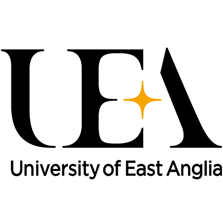
Fostering an ‘I can’ attitude in students
You may also like
Self-perceived competency and agency – having the power, resources and sense of control to handle a wide range of tasks and situations – are critical for the engagement, development and well-being of higher education students. However, the experiences students encounter can often leave them questioning their abilities, particularly when faced with new academic and personal challenges. Educators play an important role in fostering an “I can” mentality among students, which empowers them to recognise their potential and take ownership of their educational experience. Here are practical strategies to nurture students’ belief in their capabilities. I hope these will be helpful for everyone but particularly university teaching staff.
Reduce the use of competency-based assumptions
Educators often make assumptions about students’ prior knowledge or experiences. For example, phrases like “you should remember (topic)” are frequently heard when connecting current to previously taught content. However, these statements assume a level of competency that may not reflect the diverse backgrounds and experiences of all students. Such phrases can therefore inadvertently undermine confidence and create barriers to learning. This is especially prevalent for students with protected characteristics. Considering the sheer volume of content students receive, it is unreasonable to expect them to remember everything, regardless of background.
We should aim to use language in a way that contextualises student knowledge and is more reflective of the variety in student recall and understanding. For example, when mentioning previous content, connections could be more contextually transparent: “We looked at (topic) last semester, which suggested X…” followed by an explanation of how it connects to the present topic. By offering this transparency in an inclusive and supportive way, we can then prevent such challenges in academic work from being perceived as evidence of incompetency. This may then help to foster an “I can” mindset among students, enabling them to seek further knowledge from this transparency without feeling incapable or defeated.
Challenge expectations about the role of the student ‘adult’
A common expectation in higher education is for students to be fully independent and self-directed “adults”. While this may be a reality for some, it can be problematic in the context of equity, diversity and inclusion (EDI). It not only dismisses students’ diverse needs but fails to account for individual variations in background and experience. For example, neurodivergent students may require additional support, not because they lack capability, but because they face systemic or structural barriers that others may not. Being mindful of our expectations of students therefore requires constant reflection on our assumptions and how these feed into our practices. By doing this, we are not diminishing their expectations, but ensuring they have an equitable opportunity to receive facilitative support to become agentic and independent.
Expecting students to automatically adopt full independence the moment they step on to university grounds is as unrealistic as expecting someone to master a new language just by setting foot in a foreign country. Independence, like language fluency, is a skill that develops over time with practice, guidance and support. So, rather than imposing blanket expectations of independence, educators should focus on fostering growth, and “becoming” rather than “being”. One way to do this might be to offer practices like flipped advising, a teaching and learning approach where students engage with content before meeting with an adviser.
- Resource collection: Teaching with compassion
- Using emotions to boost learning
- Relieve student boredom by ‘activating’ lectures
Promote reflection and awareness of development through flipped advising
Flipped advising is a reflective approach that focuses on what students have already achieved and what they can achieve in the future. It involves helping students recognise their growth and potential by reflecting on their journey. For instance, when advising a student transitioning to a new academic year, flipped advising could involve prompting them to consider the skills they have developed since starting university. Reflective questions to help them prepare for discussion during their advisory meetings could include:
- What skills have you gained that you didn’t think you would?
- Where have you seen improvement in yourself, whether academically, personally or socially?
- What challenges have you overcome, and how?
By guiding students to acknowledge their progress, educators can help them build positive self-perception. This approach shifts the focus from academic achievements alone to holistic development, encouraging students to see themselves as capable and adaptable individuals. Additionally, it provides an opportunity to set future goals based on their strengths and aspirations, reinforcing their agency in shaping their educational journey.
Support without overstepping
Another common narrative among HE staff is that students want to “pass the buck” and continue with the spoon-fed approach of secondary education. However, on talking with students in my practice and research, it has become clear to me that they seek opportunities for choice and self-direction. There is a difference between “passing the buck” and requiring guidance on how to take agentic actions. If a student says “I just need someone to tell me what to do”, it is not them asking for us to do the work for them, but to provide the guidance and tools to take the action themselves. As educators, we should therefore be offering clear, actionable advice and resources that empower those students to take the necessary steps. The key is to collaborate with the student, ensuring they feel supported while maintaining a sense of ownership over their experience. By doing this, we can facilitate and promote agency.
We can cultivate an “I can” attitude among students by adjusting our language to avoid perpetuating stereotypes, by embedding reflective practices that build students’ awareness of their development and by supporting without spoon-feeding. Ultimately, these strategies can help students see challenges as opportunities for growth and believe in their ability to navigate their academic journeys.
Megan Jones is a lecturer in psychology at the University of East Anglia.
If you would like advice and insight from academics and university staff delivered direct to your inbox each week, sign up for the Campus newsletter.




